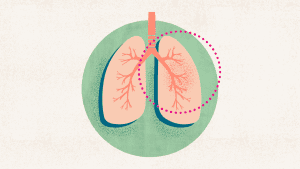Lung Cancer: Treatment Options for Stage 3 and 4 Patients
If you or a loved one has been diagnosed with stage 3 or 4 lung cancer, you’re likely grappling with difficult emotions and complex treatment decisions. While advanced lung cancer presents significant challenges, it’s important to understand that treatment options are available that may extend life and improve quality of life. In this article, you’ll learn about the latest approaches for managing late-stage lung cancer, including targeted therapies, immunotherapy, and palliative care. We’ll explore how these treatments work, their potential benefits and side effects, and how they fit into a comprehensive care plan. Armed with this knowledge, you can have more informed discussions with your healthcare team about the best path forward.
What are the stages of lung cancer?
Lung cancer is staged from 0 to 4, with higher numbers indicating more advanced disease. Stage 0 is confined to the lung lining, while stages 1-2 involve larger tumors or limited lymph node spread. Stage 3 is considered “locally advanced”, with more extensive lymph node involvement. Stage 4 indicates metastasis to distant organs. Understanding the stage is crucial for determining the most appropriate advanced lung cancer treatment and lung cancer care in Singapore.
Treating stage IIIA NSCLC
For patients with stage IIIA non-small cell lung cancer (NSCLC), advanced lung cancer treatment often involves a multimodal approach. Options may include surgery, chemotherapy, radiation therapy, and immunotherapy, depending on the tumor’s characteristics and the patient’s overall health. In lung cancer care Singapore and other advanced healthcare systems, neoadjuvant chemotherapy or chemoradiation followed by surgery is a common strategy for resectable tumors. For unresectable cases, concurrent chemoradiation remains the standard of care, potentially followed by immunotherapy to improve outcomes.
Treating stage IIIB NSCLC
For patients with stage IIIB non-small cell lung cancer (NSCLC), advanced lung cancer treatment typically involves a multimodal approach. The standard of care is concurrent chemoradiation, which may improve survival rates compared to sequential therapy. In some cases, immunotherapy drugs like pembrolizumab may be considered as first-line treatment. For optimal lung cancer care Singapore facilities offer, a multidisciplinary team evaluates each case to determine the most appropriate treatment plan, considering factors like overall health and cancer extent.
Treating stage IVA and IVB NSCLC
For patients with advanced lung cancer, treatment options vary based on the cancer’s spread and genetic profile. In stage IVA, where cancer has spread to one site, targeted therapy or surgery may be considered. For stage IVB, with widespread metastasis, lung cancer care in Singapore often involves chemotherapy, immunotherapy, or targeted drugs. Cancer treatment in Singapore aims to slow progression and alleviate symptoms, potentially improving cancer survival rates.
Lung cancer treatment options in Singapore
For patients seeking advanced lung cancer treatment, Singapore offers world-class care. Treatment plans typically include a combination of surgery, chemotherapy, radiation therapy, targeted therapy, and immunotherapy. The specific approach depends on the cancer type and stage. Lung cancer care Singapore centers provide comprehensive services, from diagnosis through treatment and follow-up care. While cancer treatment Singapore options are advancing, it’s important to note that cancer survival rates vary based on individual factors.
Side effects of lung cancer treatments
Advanced lung cancer treatment can cause various side effects. Chemotherapy may lead to fatigue, infections, hair loss, and changes in liver function. Radiation therapy can result in long-term cardiac issues. Patients undergoing cancer treatment in Singapore should be aware of potential nausea, vomiting, and decreased appetite. It’s crucial to communicate any side effects to your healthcare team to ensure proper management and maintain optimal cancer survival rates.
Advanced lung cancer treatment FAQs
What are the options for advanced lung cancer treatment?
For stage 3 and 4 patients, advanced lung cancer treatment typically involves a combination of therapies. These may include chemotherapy, radiation, immunotherapy, and targeted drugs. In some cases, surgery might be considered for stage 3A patients. Lung cancer care in Singapore often follows similar protocols, with cancer treatment Singapore facilities offering state-of-the-art options. Cancer survival rates vary, but new therapies are continually improving outcomes for patients with advanced disease.
Conclusion
As you navigate the challenging journey of stage 3 or 4 lung cancer, remember that you have options. While advanced lung cancer remains a serious diagnosis, ongoing research and new treatment approaches offer hope. Work closely with your oncology team to determine the best course of action for your individual case. Whether pursuing aggressive treatment or focusing on quality of life, your choices matter. Stay informed about clinical trials and emerging therapies that may benefit you. With a combination of conventional treatments, targeted therapies, and supportive care, you can optimize your prognosis and maintain the best possible quality of life during this difficult time.
Disclaimer: The content for this article is for informational purposes only and is not a substitute for professional medical advice, diagnosis, or treatment. Always consult your oncologist with any questions regarding a medical condition. Do not disregard medical advice or delay seeking it based on information from this site.

